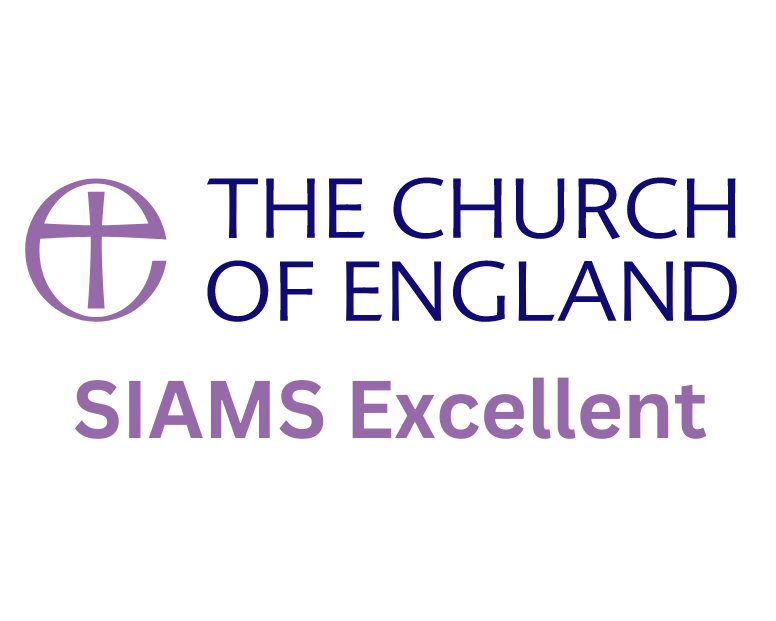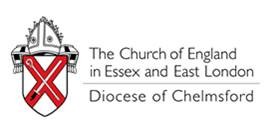History
What Will I Learn?
Key Stage 3
Year Seven
Autumn
Aspects of History This is the foundation for learning the importance of understanding the past. Significant people and events will be identified, and fundamental historical principles are introduced such as the principles of chronology, change and continuity, and cause and consequence. Skills in understanding sources are also introduced.
Why Are Romans Important? You start with understanding the first civilisation of modern Britain (Romans).
1066 and all that
You learn how the concept of how the monarchy unifies the country and influences life for ordinary people. You analyse how William took control of England and established his authority.
Spring
The Crusades
You begin an exploration of events in other countries during the Middle Ages. Beginning with a look at the influence of religion during the reign of Richard I, this topic will look at the reason for the Crusades and whether they achieved their aims.
Mansa Musa and African Empires
Turing our attention to Africa, this topic looks at the richest man to have ever lived: Mansa Musa, the ninth Mansa of the Mali Empire. Building on previous work on the Romans, you are encouraged to make comparisons and look at how their Empire compared and contrasted to that of Musa and other African leaders.
The Mogul Empire
You learn about the Mogul Empire of South Asia, looking at how it was formed, its cultures, traditions and characteristics.
Medieval Life
Returning to England in the Middle Ages, this unit continues a chronological journey through English history, looking
Summer
Reformation – challenges to the Catholic Church
You look at the complex issue of religion under the Tudors, which is crucial to our understanding of the foundation of Protestantism in this country (starting with the young Henry VIII).
Religion under Edward and Mary I
Having studied how religion changed following the reformation in England, this unit looks at how the Protestant church developed under the young King Edward VI, followed by the impact of Mary I’s short reign and the violent return to Catholicism.
Year Eight
Autumn
Compromise: England: Religion and Society under Elizabeth I
You finish your study of the Tudors by looking at the reign of Elizabeth I and how she attempted to foster a more peaceful and tolerant attitude to religion.
The Early Stuarts
A study of the key events in the 37 years from the coronation of James I in 1603 to the end of Charles I’s personal rule in 1640. We look at how society developed, the nature of power and kingship and the struggle between the King and Parliament.
Spring
Civil War, Execution and Restoration
You study how William took control of England and established his authority. Introducing an understanding of how the monarchy has influenced society.
Revolutions:
The industrial revolution
You will gain an understanding of the transition from an agrarian society to an industrialised one. You also study poverty and crime in the Victorian age.
The French Revolution
Continuing this term’s focus on revolutions, you now study the French Revolution, a period of major social upheaval which sought to completely change the relationship between the rulers and those they governed and to redefine the nature of political power.
The Russian Revolution
Our final study of revolution looks at the Russian revolution and the transition to a communist state that began with the overthrow of the Tsarist ruler in 1917.
Summer
Empire / Slavery
Following the Industrial Revolution, you gain an insight into how Britain developed into a global trading nation, including the creation of an empire that went together with this.
You also learn about the African slave trade, including the workings of the Triangular trade, the treatment of slaves, why the institution lasted so long and its eventual abolition.
Victorian Society and Jack the Ripper
This unit provides a study of many aspects of Victorian society including the political arena, the problem of poverty and crime and punishment. As a case study, you look at the Jack the Ripper case and the nature of policing in this era.
Year Nine
Autumn
World War One: Context, Causes and Main Events
We now move into the 20th century and look at assessing and analysing the causes of war through a study of the build up to and start of World War 1.
The Interwar Years
The aftermath of WW1 in Britain and across Europe. How did countries rebuild after the Great War? What was the social, political and economic impact?
Causes of World War Two
You study how key events in the interwar years provided long-term, mid-term and short-term causes of the Second World War. You explore the rise of the Nazi party, their ideology and actions covering: the Treaty of Versailles, the League of Nations, the Wall Street crash, Hitler’s invasion of Poland.
Spring
Main Events of WW2
In this unit, we cover the main events of WW2, looking at how fortunes changes for the Allies and how the war was fought in many different arenas. We also look at the impact of the war on Britain itself and how it affected the lives of everyday citizens.
Holocaust and Genocide
An investigation of the holocaust and a wider look at racism and intolerance and its consequences. We look at Adolf Hitler and the Nazi Party’s attitude to minority groups and their Final Solution. You build on this learning by looking at examples of genocide in different countries and time periods.
Summer
American Civil Rights
You examine the American Civil Rights movement, continuing the theme of racism and intolerance. You follow the progress of the movement, linking historical events to those still happening in the world today.
Key Stage 4
Year Ten
Autumn
Weimar & Nazi Germany
You are assessed on your knowledge of Germany post WW1: the creation of a democracy, the Weimar Republic, and the significant problems faced by that government. You learn how Hitler emerged as a serious political figure and managed to gain power, before transforming Germany into a National Socialist state and life for German citizens living in that totalitarian state.
Spring
Superpower Relations Cold War
This unit starts at the end of WW2, you learn about the divided Europe that emerged at the end of that conflict. The struggle between two superpowers and their different ideologies will need to be understood. You are assessed on your knowledge of how the Cold War was triggered, the events of the Cold War and how it, and why, it ended.
Summer
Crime & Punishment
You study the history of crime and punishment in England from c1000 to the present. The purpose is to study how a legal system was developed and evolved over the centuries.
There is a compulsory element that particularly focusses on the Whitechapel area in the late 1800s
Year Eleven
Autumn
Crime & Punishment (cont)
Students will study the history of crime and punishment in England from c1000 to the present. The purpose is to study how a legal system was developed and evolved over the centuries.
There is a compulsory element that particularly focusses on the Whitechapel area in the late 1800s
Spring
Henry VIII and his ministers 1509 – 40
You discover why, as well as how, Henry VIII was desperate for, and procured, a divorce from his first wife as he desired a son. The unit will also look at the impact on Henry, and the country, of his other wives. You also look at the work of Henry’s key advisors during this time, as well as the relationship between England and her continental rivals.
Summer
.
What Will I Learn?
Key Stage 3
Year Seven
Autumn
Aspects of History This is the foundation for learning the importance of understanding the past. Significant people and events will be identified, and fundamental historical principles are introduced such as the principles of chronology, change and continuity, and cause and consequence. Skills in understanding sources are also introduced.
Why Are Romans Important? You start with understanding the first civilisation of modern Britain (Romans).
1066 and all that
You learn how the concept of how the monarchy unifies the country and influences life for ordinary people. You analyse how William took control of England and established his authority.
Spring
The Crusades
You begin an exploration of events in other countries during the Middle Ages. Beginning with a look at the influence of religion during the reign of Richard I, this topic will look at the reason for the Crusades and whether they achieved their aims.
Mansa Musa and African Empires
Turing our attention to Africa, this topic looks at the richest man to have ever lived: Mansa Musa, the ninth Mansa of the Mali Empire. Building on previous work on the Romans, you are encouraged to make comparisons and look at how their Empire compared and contrasted to that of Musa and other African leaders.
The Mogul Empire
You learn about the Mogul Empire of South Asia, looking at how it was formed, its cultures, traditions and characteristics.
Medieval Life
Returning to England in the Middle Ages, this unit continues a chronological journey through English history, looking
Summer
Reformation – challenges to the Catholic Church
You look at the complex issue of religion under the Tudors, which is crucial to our understanding of the foundation of Protestantism in this country (starting with the young Henry VIII).
Religion under Edward and Mary I
Having studied how religion changed following the reformation in England, this unit looks at how the Protestant church developed under the young King Edward VI, followed by the impact of Mary I’s short reign and the violent return to Catholicism.
Year Eight
Autumn
Compromise: England: Religion and Society under Elizabeth I
You finish your study of the Tudors by looking at the reign of Elizabeth I and how she attempted to foster a more peaceful and tolerant attitude to religion.
The Early Stuarts
A study of the key events in the 37 years from the coronation of James I in 1603 to the end of Charles I’s personal rule in 1640. We look at how society developed, the nature of power and kingship and the struggle between the King and Parliament.
Spring
Civil War, Execution and Restoration
You study how William took control of England and established his authority. Introducing an understanding of how the monarchy has influenced society.
Revolutions:
The industrial revolution
You will gain an understanding of the transition from an agrarian society to an industrialised one. You also study poverty and crime in the Victorian age.
The French Revolution
Continuing this term’s focus on revolutions, you now study the French Revolution, a period of major social upheaval which sought to completely change the relationship between the rulers and those they governed and to redefine the nature of political power.
The Russian Revolution
Our final study of revolution looks at the Russian revolution and the transition to a communist state that began with the overthrow of the Tsarist ruler in 1917.
Summer
Empire / Slavery
Following the Industrial Revolution, you gain an insight into how Britain developed into a global trading nation, including the creation of an empire that went together with this.
You also learn about the African slave trade, including the workings of the Triangular trade, the treatment of slaves, why the institution lasted so long and its eventual abolition.
Victorian Society and Jack the Ripper
This unit provides a study of many aspects of Victorian society including the political arena, the problem of poverty and crime and punishment. As a case study, you look at the Jack the Ripper case and the nature of policing in this era.
Year Nine
Autumn
World War One: Context, Causes and Main Events
We now move into the 20th century and look at assessing and analysing the causes of war through a study of the build up to and start of World War 1.
The Interwar Years
The aftermath of WW1 in Britain and across Europe. How did countries rebuild after the Great War? What was the social, political and economic impact?
Causes of World War Two
You study how key events in the interwar years provided long-term, mid-term and short-term causes of the Second World War. You explore the rise of the Nazi party, their ideology and actions covering: the Treaty of Versailles, the League of Nations, the Wall Street crash, Hitler’s invasion of Poland.
Spring
Main Events of WW2
In this unit, we cover the main events of WW2, looking at how fortunes changes for the Allies and how the war was fought in many different arenas. We also look at the impact of the war on Britain itself and how it affected the lives of everyday citizens.
Holocaust and Genocide
An investigation of the holocaust and a wider look at racism and intolerance and its consequences. We look at Adolf Hitler and the Nazi Party’s attitude to minority groups and their Final Solution. You build on this learning by looking at examples of genocide in different countries and time periods.
Summer
American Civil Rights
You examine the American Civil Rights movement, continuing the theme of racism and intolerance. You follow the progress of the movement, linking historical events to those still happening in the world today.
Key Stage 4
Year Ten
Autumn
Weimar & Nazi Germany
You are assessed on your knowledge of Germany post WW1: the creation of a democracy, the Weimar Republic, and the significant problems faced by that government. You learn how Hitler emerged as a serious political figure and managed to gain power, before transforming Germany into a National Socialist state and life for German citizens living in that totalitarian state.
Spring
Superpower Relations Cold War
This unit starts at the end of WW2, you learn about the divided Europe that emerged at the end of that conflict. The struggle between two superpowers and their different ideologies will need to be understood. You are assessed on your knowledge of how the Cold War was triggered, the events of the Cold War and how it, and why, it ended.
Summer
Crime & Punishment
You study the history of crime and punishment in England from c1000 to the present. The purpose is to study how a legal system was developed and evolved over the centuries.
There is a compulsory element that particularly focusses on the Whitechapel area in the late 1800s
Year Eleven
Autumn
Crime & Punishment (cont)
Students will study the history of crime and punishment in England from c1000 to the present. The purpose is to study how a legal system was developed and evolved over the centuries.
There is a compulsory element that particularly focusses on the Whitechapel area in the late 1800s
Spring
Henry VIII and his ministers 1509 – 40
You discover why, as well as how, Henry VIII was desperate for, and procured, a divorce from his first wife as he desired a son. The unit will also look at the impact on Henry, and the country, of his other wives. You also look at the work of Henry’s key advisors during this time, as well as the relationship between England and her continental rivals.
Summer
.

Please read about our Curriculum Intent and the KS3 and KS4 Curriculum Journey which are both available in the attachments section on this page. If you require any further information please email history@steds.org.uk.






